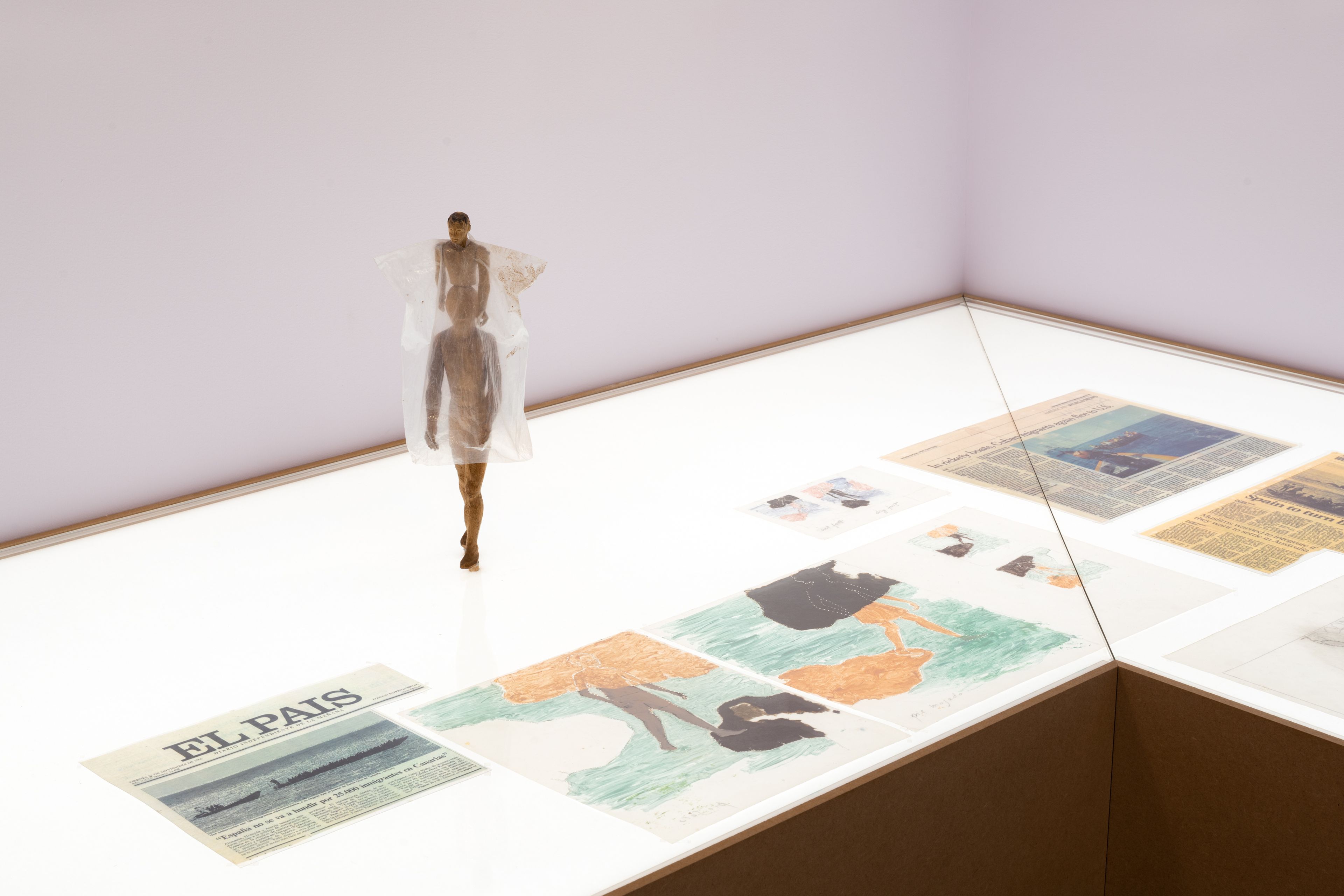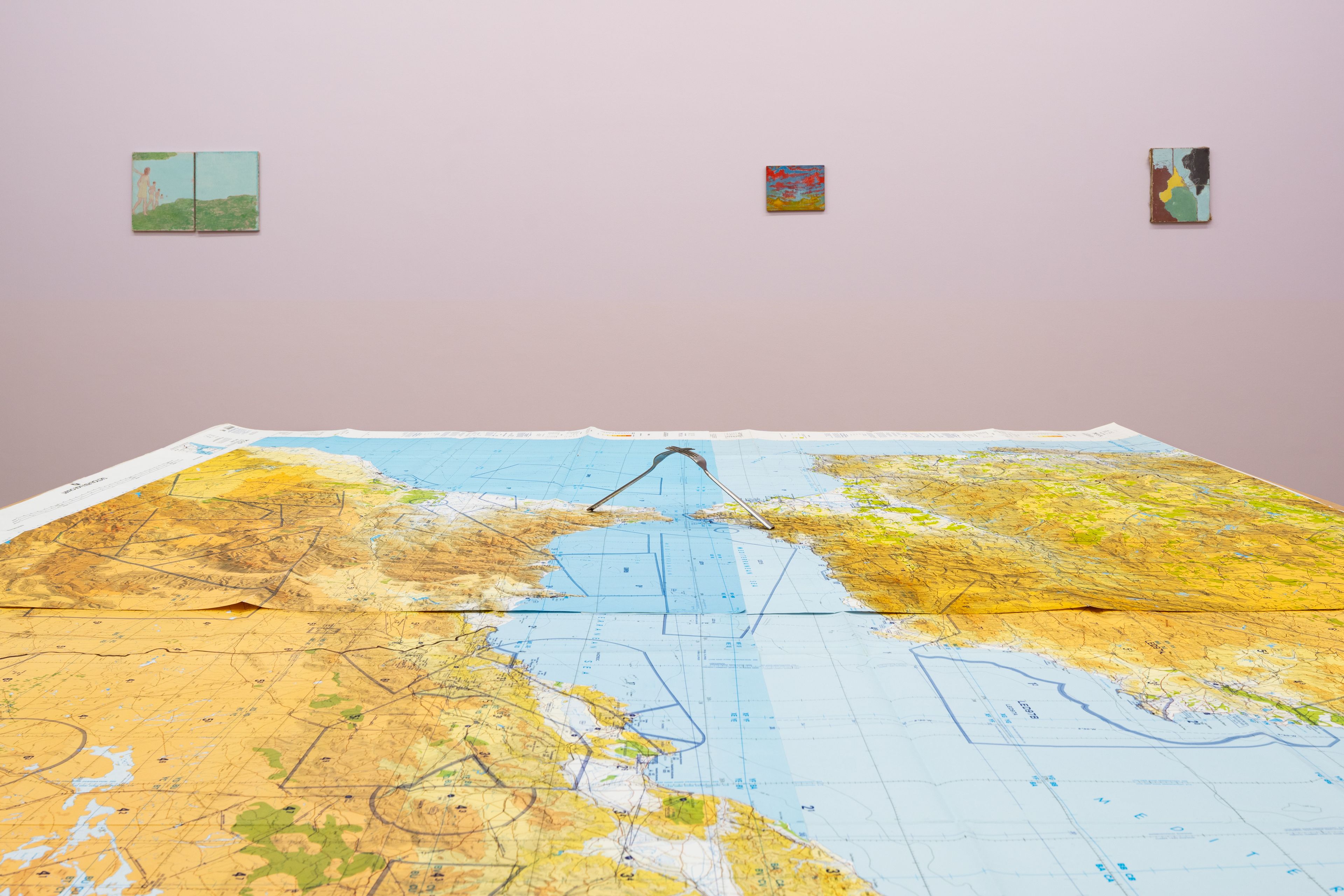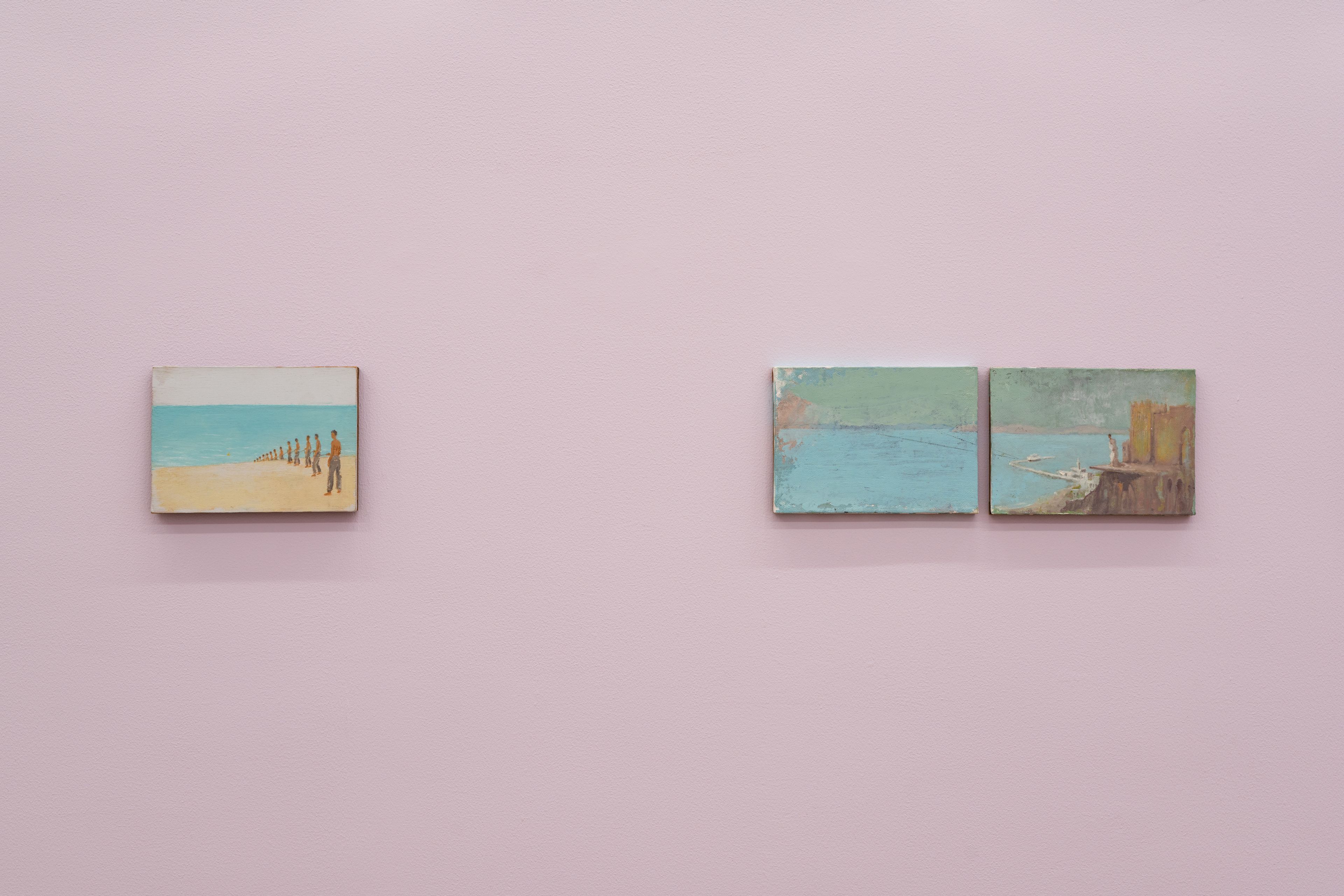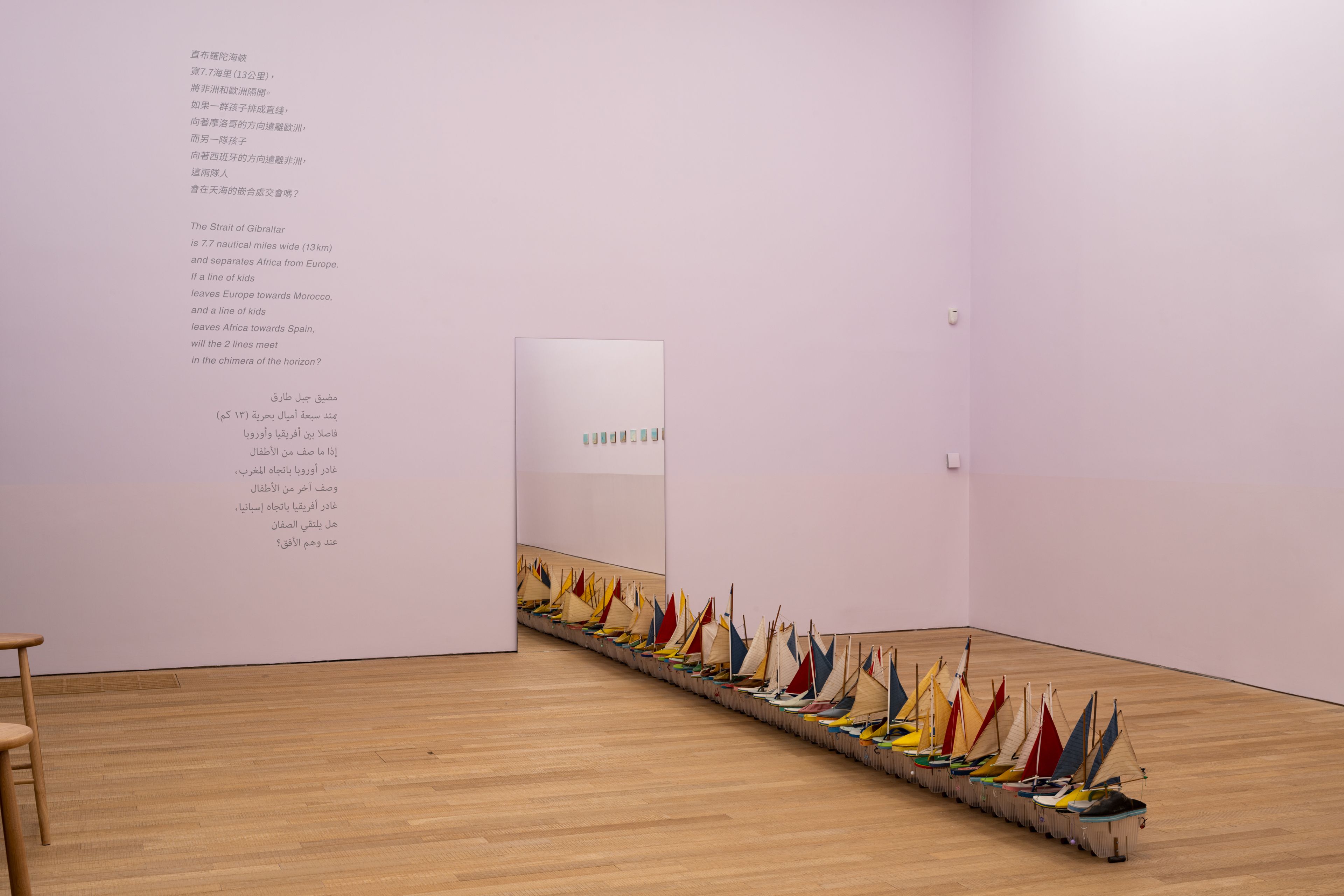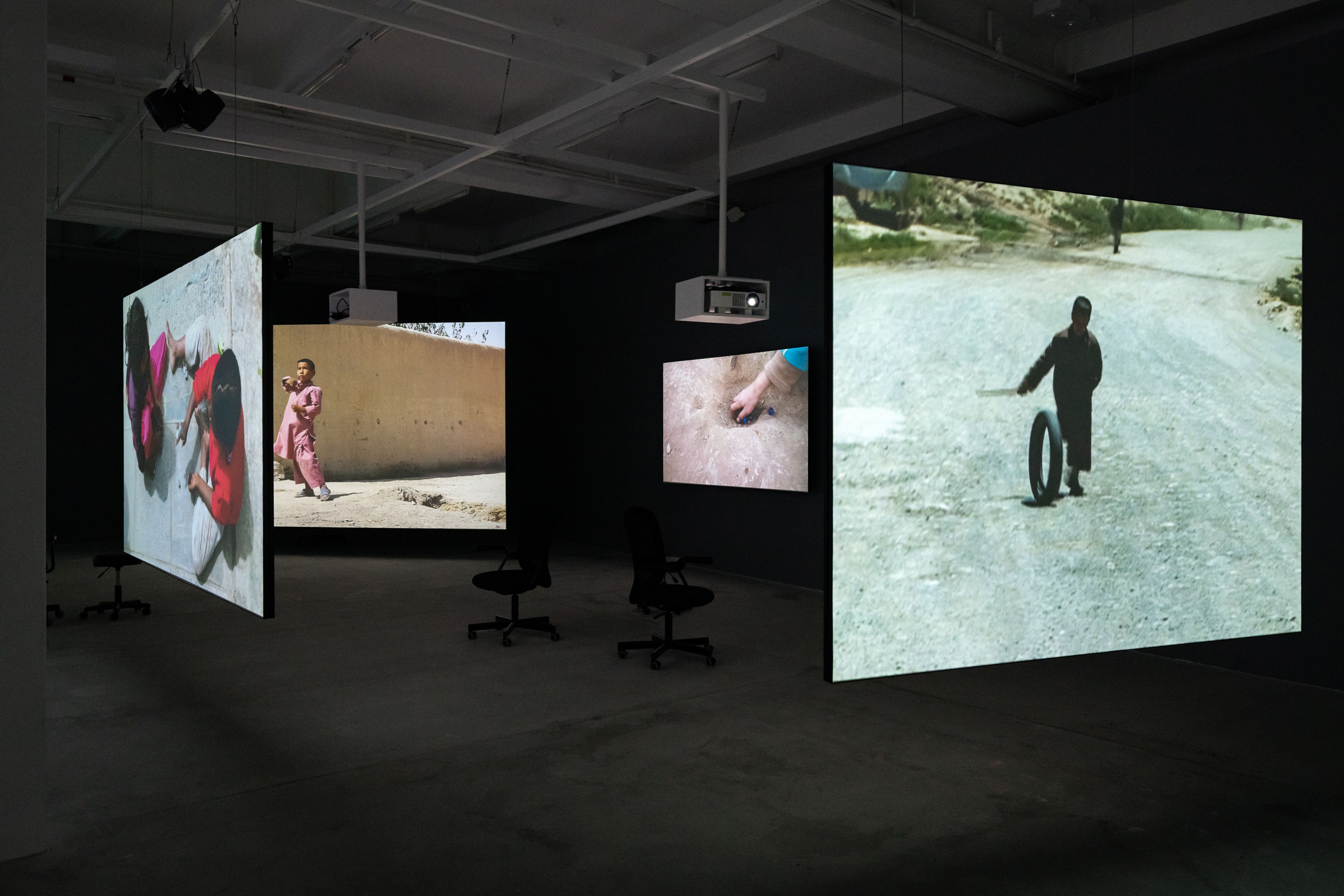Tai Kwun, Hong Kong
2020
October 28, 2020–March 28, 2021
Wet feet __ dry feet: borders and games is the first solo exhibition in Hong Kong for Francis Alÿs. Structured around the artist’s interest in migration, borders, and his fascination with children’s games from around the world, this solo exhibition highlights Francis Alÿs’s poetic, imaginative sensibility, anchored by geopolitical concerns and individual will while being grounded in everyday life. The connection between borders and games in Alÿs’s artistic practice lies at the heart of the exhibition. On view in the exhibition was Alys’s major video installation, Don’t Cross the Bridge Before Getting to the River (2008), along with over 100 paintings, drawings, notes and ephemera related to the project. Also included in the exhibition was the Artist's ongoing project Children’s Games (1999–present), consisting of more than 20 documentary videos of children at play in various locations including Afghanistan, Iraq, Nepal, Jordan, Mexico, France, and Hong Kong—the last featuring newly commissioned videos by Tai Kwun Contemporary. The title of the exhibition was the spark to Alÿs’s works in this exhibition: “Wet Feet, Dry Feet” refers to the U.S. policy on Cuban refugees in 1995. Under this policy, Cuban migrants headed for the United States faced vastly different treatment depending on whether they were intercepted at sea or on land, on US soil. If intercepted at sea (“wet feet”), they would be repatriated back to Cuba; if intercepted on land (“dry feet”), they would be allowed to stay in the United States. For a Hong Kong audience, this might sound uncannily familiar: the “Touch Base” policy in 1970s Hong Kong meant that Mainland Chinese migrants would be sent back to the Mainland if intercepted at sea or in the New Territories; only if they reached south of Boundary Street—the formal boundary between Kowloon and the New Territories—were migrants allowed to stay legally in the territory (in the quirky British sports reference, “touch base”).
